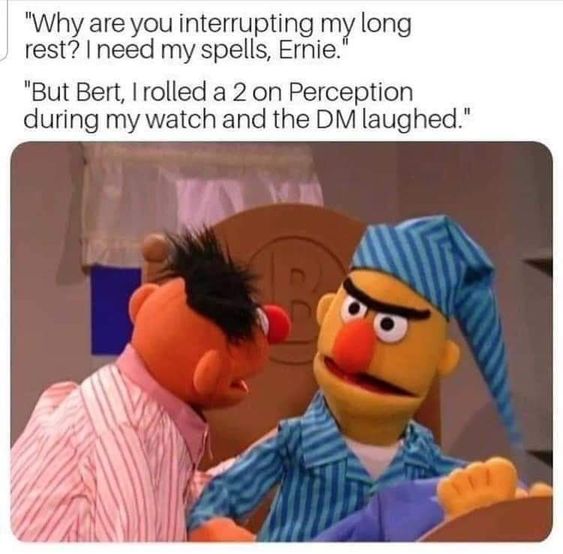this post was submitted on 28 Mar 2024
538 points (98.4% liked)
RPGMemes
12363 readers
883 users here now
Humor, jokes, memes about TTRPGs
founded 2 years ago
MODERATORS
you are viewing a single comment's thread
view the rest of the comments
view the rest of the comments

I mostly disagree. It takes away a feeling of agency even if its still random at the end of the day. Just trust your players not to meta game. There are exceptions when it would be hard for the player to still get the intended experience when not meta gaming; but leaving the existence of that experience up to a roll in the first place is probably whats at fault.
Perception stats exist for a reason, and I'd argue they're usually incompatible with knowing the result of the roll, even with players who try not to meta-game. Even if they behave, they're subconsciously going to know how they rolled and that will change the experience, unless you start meta-meta-gaming (changing the success window, frequently calling for rolls for nothing, etc.). Personally that seems like a pound of cure vs an ounce of prevention.
If a semi-spoiler-laden, actively counter-meta-gamed experience is what your group likes, more power to you. But more often than not, I think the GM rolling for checks where success/failure isn't obvious preserves the experience for all players and prevents meta-gaming, both intentional and subconscious.
My experience is that, in practice, players actually like secret checks more often than they don't. The feel-bad of "player agency" loss (what agency is there in rolling a die? It's literally an agency destroying mechanic) occurs at the conceptual level, long before ever experiencing it at the table. Telling a player that just hid that they don't think the guards can see them really heightens the immersion, and players tend (most of them, most of the time, on average) to get into that.
You can't have tension when the player knows they rolled a 19 on the die.